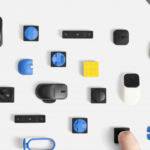
Starting this fall, Microsoft plans to offer a range of new peripherals of all kinds, which can be customized through extensions and user customizations so that they can also be comfortably used by people with physical disabilities. The so-called Microsoft Adaptive Accessories will premiere later this year. The Redmond group wants to give people with disabilities better opportunities to operate Windows computers, with the new Muse and other complementary products taking over all possible tasks.
Some customers struggle to use a mouse or keyboard with a “traditional” design in a meaningful way. The company, therefore, supports a new concept that attempts to reduce the actual hardware, for example, a computer mouse, to a minimum so that a kind of basic module is created that the buyer can then supplement with his own adjustments. his needs. In the case of the mouse, for example, these are individually designed “tails” and “thumb rests”. Later on, Microsoft also plans to offer a central receiver module called the Adaptive Hub, which should be the interface between up to four “Adaptive Buttons” and the host PC.
The system works wirelessly and thus avoids a tangle of cables. The user must use it to emulate certain console keys, for example, a joystick or a D-Pad. According to Microsoft, it plans to quickly expand the “Adaptive Accessories” range, relying on close cooperation with the user community. The users themselves must be able to directly influence the design and functionality of the new products. In the future, the custom or adaptable hardware will be sold directly through the Microsoft Store, although there is also strong hope that customers will make customizations using, for example, 3D printers.
Digital marketing enthusiast and industry professional in Digital technologies, Technology News, Mobile phones, software, gadgets with vast experience in the tech industry, I have a keen interest in technology, News breaking.